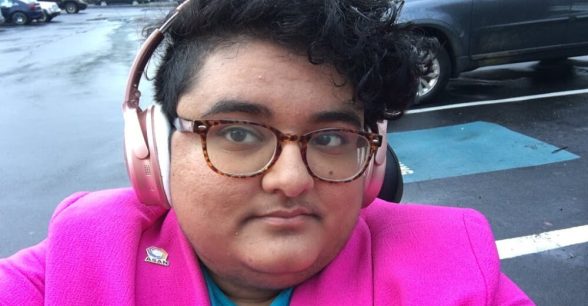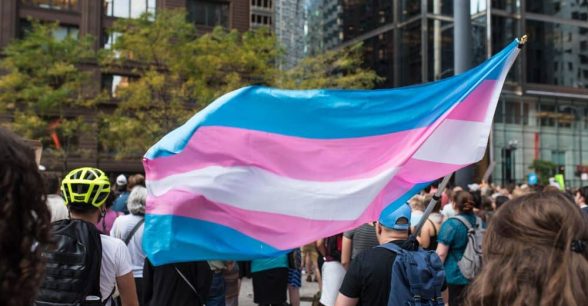I Shouldn’t Have to Share My Mental Health Trauma to Get Scholarships for Graduate School
As a disabled person who is set to begin graduate school this fall, I feel a sense of urgency to earn as much scholarship money as possible to keep educational debt in check. With this goal in mind, I have performed copious amounts of research as to which awards I qualify for. To my chagrin, the majority of disability and mental health scholarships require that I divulge the most lurid details of my conditions. For one of these awards, it wasn’t enough to state that I had a breakdown at nineteen from a mood disorder. As the winning essay demonstrated, I would have had to share the precise trauma I incurred in haunting detail.
The expectation that disabled people should write trauma porn to win scholarships, in which we divulge the most painful aspects of our struggles for the voyeurism of the nondisabled population, sets an ableist and unfair precedent. It buttresses the idea that our existence is pitiable, rather than exhilarating and valuable in its own right. It also lends credence to the misconception that trauma porn is the only thing that we have to contribute, and that our talents and expertise take a backseat to our struggles and trauma. Disabled people should be able to merit scholarships based upon qualities like academic achievement, leadership potential, community service, extracurricular activities or self-advocacy, not in reducing ourselves to our most humiliating moments.
From the list of awards I compiled, however, the vast majority of disability and mental health scholarships come with the assumption that not only is our existence tragic, but that we also must publicly identify with our tribulations more than our triumphs. In point of fact, I only recall one essay question that asked me about my proudest moments rather than my struggles. That disabled people should produce trauma porn for scholarships sells our community short by creating the expectation that society deserves to know our pain and nothing more from us. Furthermore, it devalues our potential by making us lean into misery.
While the principled choice would be to refuse to write trauma porn, the burden of looming debt meant that I had to acquiesce to crafting prose in this genre. This is not only harmful in the expectations of our lives it sets for nondisabled people; I have also been forced to relive my worst moments, from past regrets to the ways I’ve coped with relatives’ illnesses. Applying for scholarships should not take a psychic toll. The harsh reality of the costs associated with education, however, means that I have to choose between performing the stock character of the “disabled person painfully existing” and my own livelihood. When I weigh my options, I have to choose the latter. Everyone suffers when disabled people are forced to write trauma porn.
How may we relieve disabled people of our obligation to sell our misery to merit scholarships? The answer is for disability organizations to provide awards for students who demonstrate achievement across a wide variety of metrics. It’s about time that we are asked to showcase our joy and passions, rather than our pain and trauma. While I have found worthwhile opportunities from organizations such as the American Association of People with Disabilities (AAPD), these awards are the exception, rather than the rule. Thus, my message to disability groups with sizable budgets is to endow scholarships for the next generation of disabled changemakers. It will make education more in reach for us and will send the message that our stories have value beyond trauma porn.
About Rooted In Rights
Rooted in Rights exists to amplify the perspectives of the disability community. Blog posts and storyteller videos that we publish and content we re-share on social media do not necessarily reflect the opinions or values of Rooted in Rights nor indicate an endorsement of a program or service by Rooted in Rights. We respect and aim to reflect the diversity of opinions and experiences of the disability community. Rooted in Rights seeks to highlight discussions, not direct them. Learn more about Rooted In Rights



